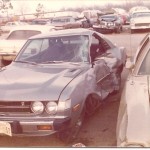President Obama met with Israel’s prime minister Netanyahu, but you’d hardly know it. There was no invitation to the press. Absolutely no photo ops. You won’t see photos of the two men standing, smiling, shaking hands in tomorrow’s newspaper. Secretary of State Hillary Clinton probably had a more substantial meeting, but even that didn’t get much attention.
You won’t hear much about Netanyahu’s concession to endorse a two-state solution, or his restricting West Bank settlement growth for ten months. But you will hear that while Vice President Biden was visiting Israel recently a new housing project was announced in the media in Israel. Oh, but not to worry, Mr. Biden punished Mr. Netanyahu by arriving ninety minutes late for a scheduled dinner.
The obvious cold shoulder shown to Israel’s prime minister may have a deeper connotation. Remember, this is the same American president who met with King Abdullah of Jordan last year, and rolled out the red carpet. The press got many photo ops. King Abdullah was here to ask the president to push Israel to accept the two-statement solution, and to push the Arab Initiative of 2002 which demands that Israel go back to the borders of pre-1967.
Remember, too, that this is the president who wrote in his book Audacity, “I will stand with them [the Muslims] should the political winds shift in an ugly direction.” In that same paragraph he states that Judeo-Christian heritage will recede as an all-religions country emerges.
What did we expect would happen when he became President? Did we expect him to continue America’s long tradition of cooperation with Israel. Did we really think that he would continue to recognize the danger Israel faces by the leaders of the extreme Arab nations? Do most Americans honestly not know that Ahmadinejab prays for a world without Israel and the United States in it? Perhaps Americans should just Google “World Without Zionism” and read some quotes.
The problem we “Judeo-Christians” -we vanishing people of a previous heritage in America- face is that we have very clear reasons why we think we should stand with Israel, and they have nothing to do with politics. No, we vanishing people happen to believe in the Bible, and the Bible shows that God has chosen to use Israel as a “clock” for the timing of the end, and as a “litmus test,” if you please, to determine who is favored by God and who is not favored.
In Numbers 24 Balaam was hired by Balak to pronounce a curse against Israel, and he went out to do so. But he could not, for he saw “that it pleased to Lord to bless Israel.” And in his discovery comes the phrase directed at Israel as a people, “Blessed are those who bless you, and cursed are those who curse you” (24:9). Now, we Christians know that is not a commandment for us, but we cannot ignore the content.
Israel played a huge role in giving us our favorite Jew, Jesus Christ. And most of us believe that Israel still has a place in prophecy. Nations are going to come against her in the end, and God is going to cause her to prevail. We can’t talk about that in politics. It sounds foolish and naive.
It’s just the mutterings of a vanishing people, the ever-fading Judeo-Christian.



